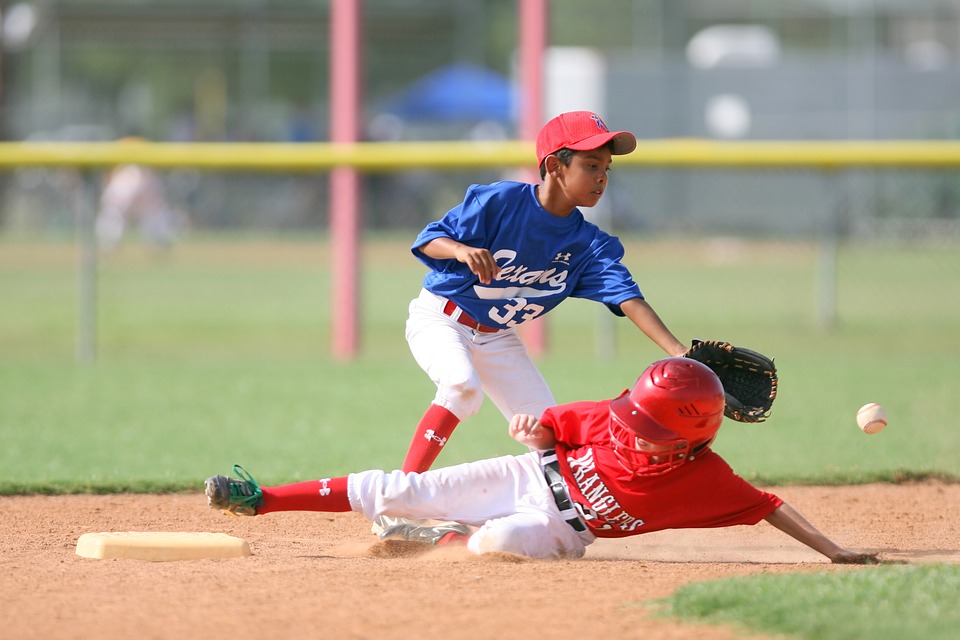School’s out for the summer! Sunshine, family vacations, and, most importantly, no homework! But are summers truly beneficial for the entire family, or do they cause stress for parents while leaving children an opportunity to disregard everything they learned the past year?
The latter is most commonly referred to as summer learning loss, and we’ve explored the background and research behind this unspoken term to provide you with insight as well as knowledge that can aid in guiding your future decisions each summer.
For more than a century, educators have been researching summer learning loss and have yet to reach a consensus on not only a solution but even its precise cause. What has become clear is the fact that summer learning loss most definitely occurs.
According to a 2016 study published by Teachers College Press, students lost an average of 25-30 percent of what they learned the previous school year by the end of summer vacation, with lower-income students tending to lose the most. Over 13 years of schooling, that’s an incredibly drastic and cumulative effect.
So, what’s the best solution? Educators and policymakers have traditionally offered summer school programs and extended academic sessions as solutions to this phenomenon. But, does that truly solve the issue, or is it simply an unpopular summertime activity solely endured in hopes that this fear won’t become reality? As you may recall, some of your fondest memories come from those summer days once the last school bell rang for the year, and you need not focus on anything except enjoying the time with friends and family. Do we really want to hold our kids back from having those same experiences?
Additionally, summer vacation can be a massive source of parental stress. According to a Groupon survey, 58% of parents stress about keeping their kids busy over the summer months, and the 2,000 subjects were ready for summer break to end after an average of just 13 days. Plenty of these parents may even be more concerned about arranging childcare than finding daily, family-friendly activities to keep their kids busy – which is yet another source of stress.
Even today, how often do parents become worn out and run down from rushing their kids from one activity to the next? And when multiple children are in the picture, this is magnified even more. Parent coach and blogger Laura Stephens cautions today’s parents against throwing endless activities at kids in an attempt to simply keep them occupied and instead advises them to focus on providing “structure.”
“These concepts are easily confused,” Stephens wrote. “We often think ‘OMG!!! They’ll be out of school. We’ll need to keep them busy!’ But, what will really offer more to your kids – and to you, as well! – is to choose wisely which activities you engage your children and families in and to keep those summer days structured and routine. By this I mean choosing which activities are meaningful to your kids, offering plenty of down time and free play, while also utilizing routine on a daily basis.”
That structure can include a few activities, but it can also feature at-home playtime (not in front of a screen), reading time, and even a sleepaway camp or a week with the grandparents – all times that will give Mom and Dad a break, too.
“Today, most parents schedule as many activities as they can for their children, thinking that will help them build skills to be successful later in life,” says pediatrician, author and vice-chair of Action for Healthy Kids, Robert Murray. “But packing your child’s day with extracurricular activities can actually have a harmful impact on their overall well-being—and limit opportunities for vital physical, emotional, and social development. The good news: as a parent, simply giving your kids back some free time can help.”
Likewise, this structure can help counter summer learning loss by engaging kids in enriching activities that keep their minds active, both at and away from home.
Interested in additional ways to do both at once? Check out the following five ways to provide enriching structure during the summer or any extended vacation:
1. Be active, and stay active.

Kids are naturally active, but with the constant distraction of online and televised entertainment, it’s no longer always their default choice for an activity. Even climbing the monkey bars or playing tag can set them up for a lifetime of enjoyment when it comes to physical activity.
Setting aside time each day for physical activity, whether it’s taking a walk, playing in the backyard, or visiting a nearby playground, is a great way to keep kids in shape, foster a love of exercise, and allow them to expend energy that could otherwise be misdirected into a troubling, less beneficial situation. Daily activity also helps to build strong muscles and bones, supports better sleep, and helps them develop a positive outlook on life.
Of course, plenty of parents aren’t comfortable letting their kids roam freely around the neighborhood, and for good reason. Parents can also encourage their kids to join a team or take lessons in swimming or another physical activity. Once they develop a passion for a particular sport, kids can even take advantage of youth sports camps and sleepaway camps that offer individualized training and coaching.
2. Build character.

Structured activities also offer a great opportunity for building character through volunteer work and other ways of giving back to the community and the environment. These actions not only keeps kids’ minds sharp to help counter that summertime learning loss, but helping others also sets kids up for success later in life.
“Helping others is a twofold power … good for both the giver and receiver,” clinical psychologist and neurotherapist Catherine Jackson told Deseret News.
According to Jackson, young people who volunteer their time learn social skills, experience, and community service hours that help them in their future endeavors.
“Volunteering also provides a sense of purpose that can help to combat depression, loneliness, anger, and reduces stress and anxiety,” Jackson explained. “As a result, volunteering promotes happiness and increases self-confidence. Furthermore, studies show neuroplasticity connections and executive functioning in the brain are better maintained with the social interactions that can be obtained through volunteering. All of these benefits equal an increase in living a longer, happier life.”
3. Study science.

According to the Educational Researcher, summer learning loss is observed in both math and reading skills. While engaging in either activity for 20 minutes a day can make a significant difference when it’s time to head back to school, many kids don’t want to focus on what they consider “schoolwork” during the summer. Fortunately, enriching science lessons can be easily integrated into downtime while also keeping kids’ math and reading skills sharp for the summer.
The 4-H STEM Lab offers a variety of engaging activities that parents and children can work on at home, on vacation, or during an enjoyable, local day trip. The University of Colorado Boulder also provides hundreds of hands-on activities that seamlessly integrate fun with learning.
Still looking for additional ways to bring science into your home? Science is all around us. Is there a thunderstorm outside? Take a look at the National Center for Atmospheric Research online, and learn about the weather as kids are seeing and hearing it. A simple activity to help kids become involved in science is purchasing an inexpensive rain gauge and helping record rain totals for the Community Collaborative Rain, Hail and Snow Network.
One of the easiest ways to hold summertime science lessons is simply taking a walk around the neighborhood or in a local park and discovering all that nature has to offer. Kids can gather leaves and flowers learn all about their collected items. A relaxing fishing trip can even become a science lesson by learning about the species caught or even local lake conditions.
Computers and screens have become much more of a commonality than they used to, and seeing the wasted time can certainly be frustrating to parents. As an alternative, challenge your child to create their own video game. The Massachusetts Institute of Technology offers Scratch, a free online computer coding portal that teaches kids all about coding and designing their own video games.
4. Promote literacy.

Kids who read tend to develop a lifelong love of learning, and there’s no better time to foster that love than during summer vacation when the reading can be for fun and not strictly by assignment.
Plan weekly trips to the library as part of your summertime structure. Not only can kids pick out the types of books they enjoy most, but many public libraries offer free classes and other summer enrichment programs that make reading even more enjoyable.
For extra motivation, develop your own summertime reading challenge with a prize if young readers meet their goals. You might offer a special treat for each book completed or a special gift when a certain number of books are completed by the end of the summer. Don’t forget to talk with your kids about the books as they read them to help develop their reading comprehension skills.
5. Explore culture.

Learning doesn’t have to come from books or the internet, and educational opportunities seem to be everywhere. Taking kids to museums, landmarks, historical sites, and other locations of cultural importance provides not only memorable experiences, but also important lessons on history, art, science, and culture.
Look for museums that offer hands-on activities and interactive displays that bring lessons to life, and teach kids about all of the opportunities around them as opposed to solely in front of a computer screen.
“That way, they’re learning and creating or playing at the same time,” fourth grade teacher Brandi Rosenbaum told PopSugar. “It’s fun for your kids to hear the history of their area and all the cool things that happened, especially if they’ve already talked about it in school,” she added.
Instituting activities to help your child avoid summer learning loss doesn’t have to be painful for you or your child. A few small strategies will keep your child’s mind (and time) busy, and they may not even realize they’re learning!


